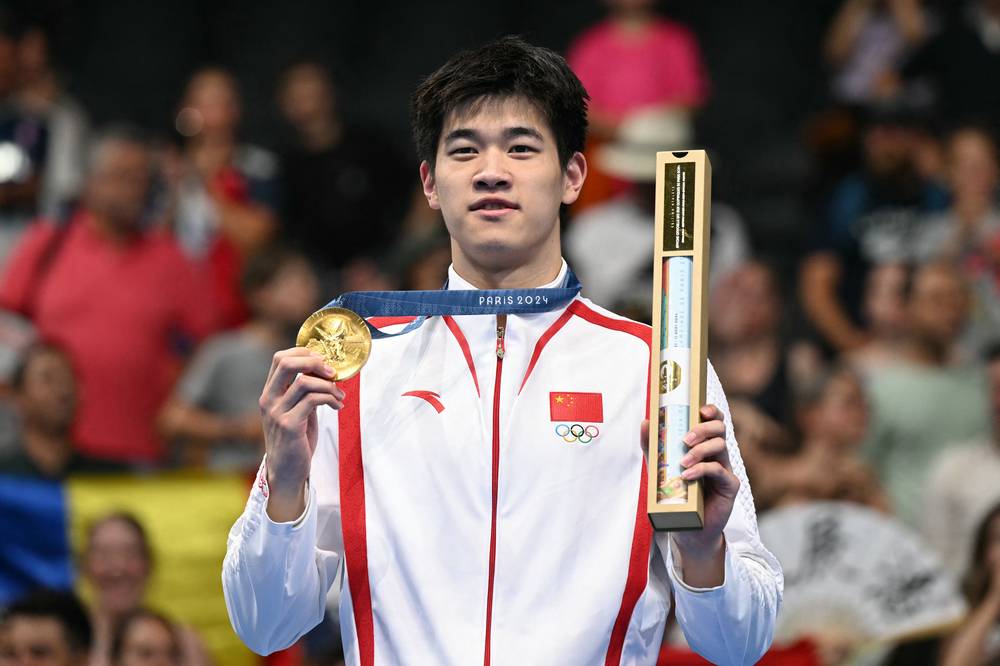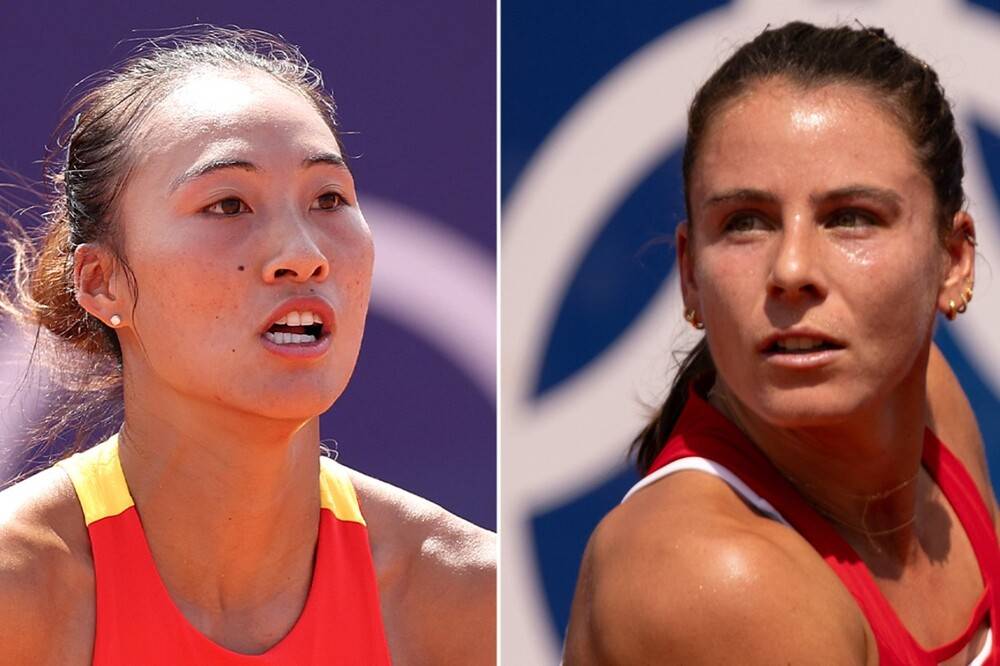Chinese athlete accuses rivals of disrespect, sportsmanship under fire amidst Olympic drama
In a separate but equally dramatic turn of events at the Paris 2024 Olympics, American tennis player Emma Navarro found herself at the centre of controversy following her round of 16 loss to China’s Qinwen Zheng.

SHAH ALAM - China's Pan Zhanle made headlines at the Paris 2024 Olympics not only for shattering his own world record in the 100m freestyle but also for calling out rivals for their perceived disrespect.
Amidst a wave of scrutiny over doping allegations and frosty relations with other swimmers, Pan’s achievement has flared both celebration and controversy.
On July 31, the 19-year-old from China stunned the world by smashing his own 100m freestyle world record at the Paris Olympics, clocking in at an astonishing 46.40 seconds.
His victory marked a significant milestone for China's swimming team, securing their first gold medal in the sport at these Games.
Pan's dominance in the pool left his competitors trailing, with Australia’s Kyle Chalmers finishing a distant second and the United States's (US) Jack Alexey placing seventh.
However, Pan’s victory was overshadowed by the tensions he later revealed.
In an interview with Hong Kong news broadcaster Phoenix TV News channel following his win, Pan claimed that he had been met with a cold shoulder by some of his competitors.
"When I finished the 4x100m freestyle relay the other day, I said 'hi' to Chalmers, but he totally ignored me," Pan said.
He also added that Alexey had been dismissive, even splashing water on Pan's coach during training, which Pan perceived as a sign of disrespect.
Adding to the drama, Pan's victory was questioned by some in the international swimming community.
Brett Hawke, a prominent Australian swimming coach, voiced his scepticism on social media describing Pan’s performance as ‘not real life’ and expressing doubts given the field of competitors.
His comments echoed the ongoing scrutiny that the Chinese swimming team has faced since the revelation that 23 of its athletes tested positive for a banned substance before the Tokyo Olympics in 2021.
Although these swimmers were allowed to compete after the incident was attributed to contamination, the controversy has continued to cast a shadow over Chinese athletes.
In response to the doping allegations, Pan defended himself, highlighting the rigorous testing he had undergone.
"Last year, I was tested 29 times, and not a single one was positive.
"This year, between May and July, I was tested 21 times, also none came out positive. I was tested twice at the Olympics; we can look forward to the results,” he said.
Pan’s comments reflected the pressure he and his teammates have faced under the weight of these allegations.
Pan’s remarks about his rivals’ behaviour struck a chord with Chinese fans, who quickly rallied behind him on social media.
Many criticised what they saw as the arrogance of Western competitors and commentators, celebrating Pan's victory as a triumph over adversity.
Despite the tensions, Pan's victory and his outspoken defence of his team have solidified his status as a national hero in China.
His achievement not only broke records but also challenged the dominance of Western swimmers in the men’s 100m freestyle, marking a significant moment in the sport’s history.
Emma Navarro's Bitter Exit at Paris 2024
In a separate but equally dramatic turn of events at the Paris 2024 Olympics, American tennis player Emma Navarro found herself at the centre of controversy following her round of 16 loss to China’s Qinwen Zheng.
Navarro, who had initially seemed poised to advance after winning the first set and leading 5-3 in the second, ultimately fell to Qinwen in a stunning comeback.

However, it was Navarro’s post-match remarks that truly ignited the controversy.
In an unguarded moment, Navarro admitted to telling Qinwen that she did not respect her as a competitor, accusing her of fostering a ‘cut-throat’ atmosphere that undermined camaraderie among players.
Her comments quickly overshadowed the match itself, raising questions about sportsmanship and the pressures faced by athletes on the Olympic stage.
Despite the tension, Navarro did acknowledge Qinwen’s superior play, conceding that her opponent played some good tennis during the match.
Meanwhile, Qinwen responded to Navarro’s critique with grace, expressing a willingness to improve herself both as a player and a person.
“If she is not happy, she can come and tell me. I would like to correct it to become a better player and a better person,” Zheng said.
Navarro’s rise in the tennis world has been supported by a strong family legacy.
She is the daughter of Ben Navarro, a billionaire financier and philanthropist, who is well-known for his involvement in various charitable causes and his ownership of the Charleston Tennis Center.
Her family’s deep ties to tennis and sports have undoubtedly influenced her career, providing her with the resources and support to reach the highest levels of competition.
However, her controversial comments in Paris may add a complex chapter to her otherwise promising career.















